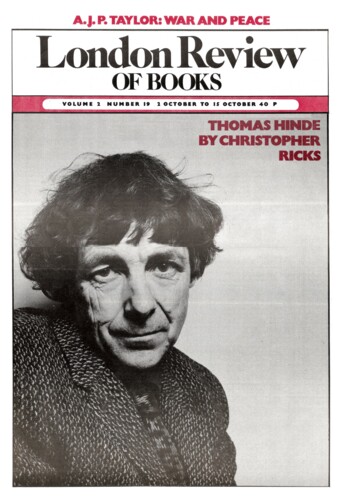Goodbye to SOGAT
John Crawley, 2 October 1980
Broadcasting began as entertainment and only later took education and information into its scope. But by 1925 the General Strike brought the BBC up against the Government, or rather against Winston Churchill, since Baldwin did not support him in his attempt to take over the Company (which is what it then was) as an extension of the British Gazette, the sole medium of communication between the Government and the people. The independence that Reith won on that occasion has remained, but broadcasting in the United Kingdom has had to work hard to keep the Government at arm’s length ever since. The spectacular clashes came into public view only occasionally – at the time of the Suez crisis in 1956, and of the Question of Ulster and Yesterday’s Men programmes in the 1970s. But the process was continuous, and Chairmen, Directors-General, editors and producers were always conscious of it. Despite the greatly different system in the UnitedStates, the pressures and battles occurred there too, only occasionally surfacing as in 1969 when Vice-President Agnew, acting as catspaw for President Nixon, attacked the television networks in a series of speeches (televised!) for failing to give his master fair coverage on Vietnam. The American networks proved vulnerable to political pressure, but in any case the pass was sold when politicians realised that they could buy time on television, thus creating a situation in which anybody could run for President so long as he was a millionaire.

